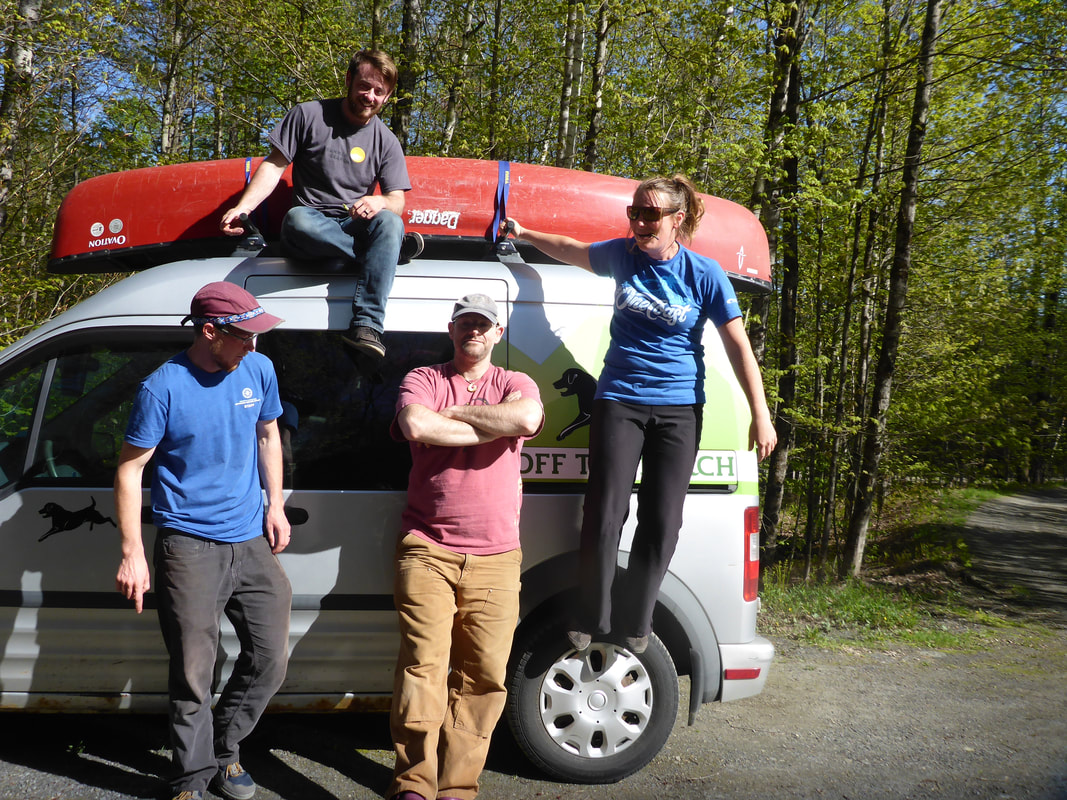|
Beth is back Stateside and the rest of us all had this past weekend available. Time to do some serious trip planning. There is no road to get to Umiujaq, so we'll have to fly. To make things more complicated, the airport that serves Umuijaq is an airstrip near the town of Radisson which is basically an outpost for Hydro-Quebec. To get there, you have to drive for 366 miles along a road with no development of any kind (save one service station staffed for 24 hrs/day at the half-way mark). It is known as the James Bay Road. To further complicate matters, we'll be bringing much more than a carry-on and a couple of checked bags (our gear estimate is 900 pounds, including boats and food) and the planes Air Inuit uses have limited cargo capacity. How, then, do we get our stuff up there? Did I mention we don't have a fat budget? That was one of the hurdles we approached (and almost jumped over) this past weekend. Another big item we discussed is what it would look like if something goes wrong - from minor to major. Nobody wants accidents to happen, but they do. It is why we have things like Ambulances, Fire Departments, and Hospitals. Trouble is, those human creations are stretched thin to non-existent when you get to the frontiers of civilization. We will be traveling beyond that frontier and into the wilderness. Without getting too bogged down into the definition of wilderness, or the ethical implications of the same, it is fair to say that the sheer vastness of the terrain in the interior of the Ungava peninsula qualifies it as a true wilderness. After we leave Umiujaq until we paddle into Kangirsuk about 40 days later we expect to see nobody. Who, then, will help us if something goes wrong? In the information (or should I say data?) age, you can push a button from anywhere in the world and tell the world that you need help. That technology is readily available, and certainly does lessen the risk margin of wilderness travel. But who is going to help you? With helicopters, float planes, military and civilian rescue teams, somebody will probably come eventually. But the cost of rescue can be enormous. Enter insurance. We don't plan to use it and we'll do everything we can to not do so, but you never know... So we've had some of those difficult, but important, conversations. On a happier note, we had some great gear planning and budgeting discussions about how to avoid single-use plastic. We're all committed to that plan and look forward to doing some serious field testing. We are assembling our gear, have now bought two pack-canoes, have a plan for how to pack our food and keep it dry with no single-use plastic, and we enjoyed the sunshine of a spring-weekend here in Vermont. We paddled the Mad River, made some yummy food with lots of veggies and some local meat, and cuddled with a cat. We have a master-plan for the next few months, with benchmarks and dates due for certain planning items. Beth, Eli and Sage will all be at Outward Bound and focusing their energy there for much of the next two months. I'll be preparing for a big party for Marisa's Masters' Graduation. The next moment we will all be together will be the beginning of June for All-Staff training at HIOBS. We will be able to get all the trip prep done, but it will be tight! Wish us luck, and if you want to help us get up there, donate below! Steve
0 Comments
Leave a Reply. |
AuthorsBeth Jackson Archives
September 2018
Categories |

 RSS Feed
RSS Feed
